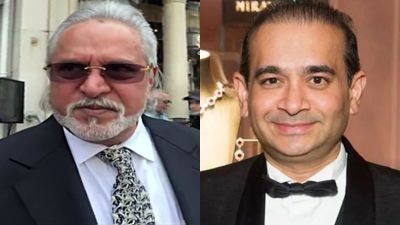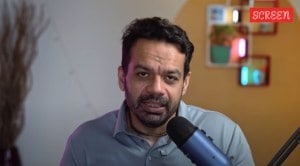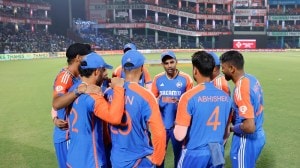Aloof Maya, lustre-less campaign lead BSP to 1 seat, 10% decline in vote share
A teacher-turned-politician from Badalpur village of Gautam Budh Nagar district, 66-year-old Mayawati, referred to popularly as “Behenji”, first became CM in June 1995.
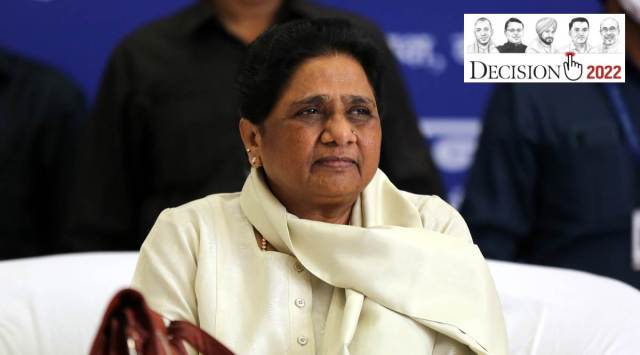 Bahujan Samaj Party chief Mayawati at the Prabudha Sammelan. (Express File Photo by Vishal Srivastava)
Bahujan Samaj Party chief Mayawati at the Prabudha Sammelan. (Express File Photo by Vishal Srivastava)THE FIRST Dalit woman Chief Minister of the country, Mayawati is looking at leading a party with all of one MLA in the Uttar Pradesh Assembly. As of late Thursday evening, its sole winner was still to be officially declared. It is now the smallest of all parties in the House in terms of numbers, even tinier than Raja Bhaiyya’s newly floated Jansatta Dal Loktantrik.
Its vote share of 12.84% is just a shade higher than its lowest ever, in 1993, of 11.12% of the votes, nine years into its formation. The 2022 results also marked the end of the oft-quoted truism that with or without Mayawati making much effort, she could command a loyal 20%-plus vote share.
In 2007, when the BSP had formed the government with 206 seats, it had got 30.43% votes. It had continued to retain 26% vote share in 2012, and even got 22.33% votes in 2017, when it won 19 seats.
The only seat that the BSP might win is Rasara in Ballia, eastern UP. Its candidate here, Uma Shankar Singh, is the sitting BSP MLA, having won the seat in 2012 as well as in 2017. He had a lead of about 6,000 votes by Thursday night.
Throughout the current contest, Mayawati warded off accusations of being the B-party of the BJP, and to justify her own strikingly low-key campaign. Despite no other star faces in the BSP, Mayawati held merely 20-odd rallies.
What fanned allegations of an understanding with the BJP was Union Home Minister Amit Shah’s unusual praise for her in the midst of the campaign, followed by Mayawati’s generous acknowledgment of it.
Her choice of candidates, including Muslim leaders on seats where the SP had fielded one, also led many to ask if her sole intent was to defeat the SP (see box).
Incidentally, while the BSP vote share fell by a huge percentage, both the BJP and SP saw theirs rise.
A teacher-turned-politician from Badalpur village of Gautam Budh Nagar district, 66-year-old Mayawati, referred to popularly as “Behenji”, first became CM in June 1995. Though her first government survived only a few months, over the years that followed, as UP failed to vote in a government with complete majority, Mayawati became CM three times with help, until she led the BSP to a complete majority in 2007. She has thus served as UP CM four times.
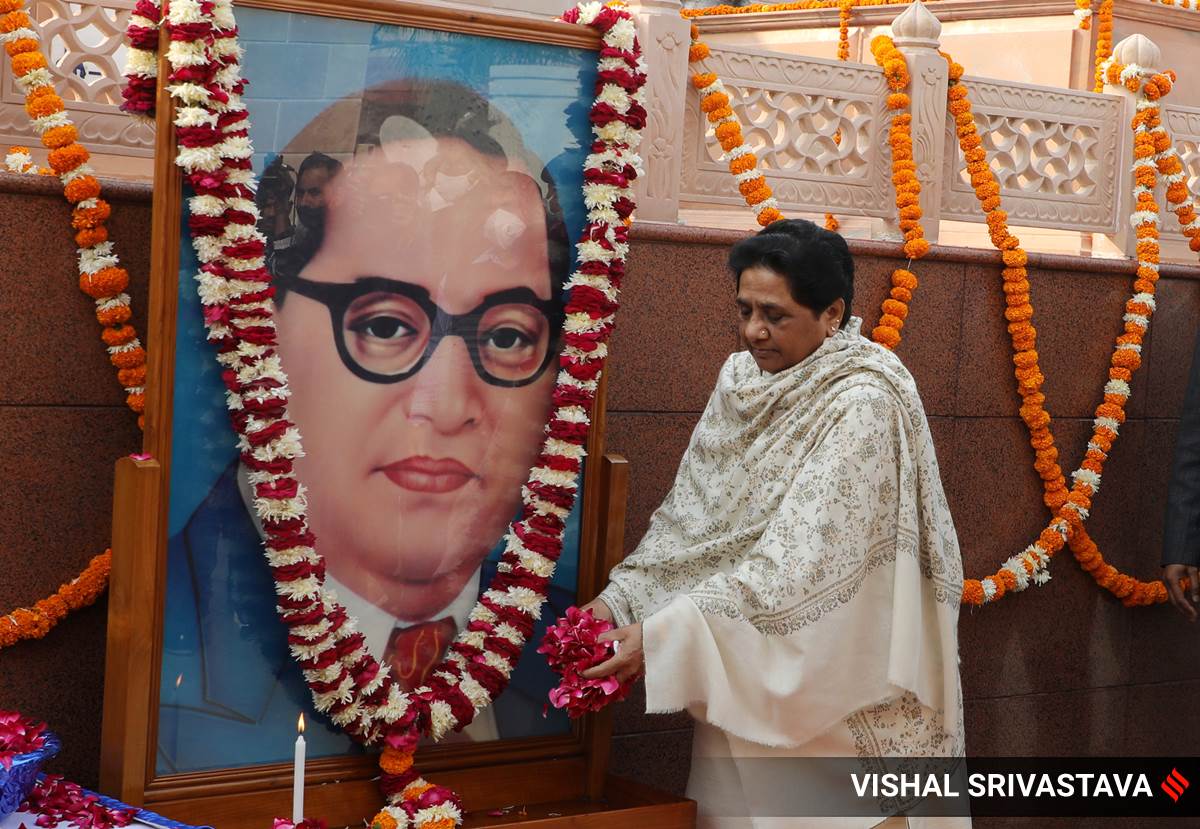 Bahujan Samaj Party National President Mayawati paying tribute to Dr Bheem Rao Ambedkar on the occasion of his Parinirvan Diwas in Lucknow. (Express photo by Vishal Srivastav)
Bahujan Samaj Party National President Mayawati paying tribute to Dr Bheem Rao Ambedkar on the occasion of his Parinirvan Diwas in Lucknow. (Express photo by Vishal Srivastav)
The 2007 election results, marking the largely Dalit backed BSP’s victory against the ruling SP, was historic. The credit was given to Mayawati’s successful “Sarvajan hitaye, Sarvajan sukhaye (for everyone, for everyone’s well being)” social engineering, attracting Brahmins to the BSP.
Having been handpicked by her mentor Kanshi Ram and handed over the reins of the BSP, as part of a “mission” to unite the Dalits, this was Mayawati’s golden moment.
Some of the BSP’s successful slogans at the time were “Chad gundan ki chati par, mohar lagao hathi par” (referring to alleged hooliganism during the SP regime and the elephant symbol of the BSP); “Pandit Shankh bajayega, hathi badta jayega (The Brahmin will herald the forward march of the Dalit)”.
As part of the Sarvajan initiative, Mayawati formed “Bhaichara groups” within the party, which remain functional to date in districts.
However, her regime was marked by a series of controversies, particularly over constructions of monuments devoted to Dalit icons including many to herself. What tends to be forgotten is that UP – which is now seeing politics of expressway one-upmanship – saw its first such project, Yamuna Expressway, under her. But even this project was marred by allegations of favours to private players and protests over land acquisition by farmers.
The years out of power were difficult for Mayawati, with the increasingly elusive and authoritarian leader, who does not interact with the media, seeing many of her senior leaders leave, including founder-members. Just before the polls, her loyalists such as former state president Ram Achar Rajbhar and BSP Legislative Party leader Lalji Verma left for the SP.
Mayawati and those close to her also faced the heat of Central agencies.
This time, with Mayawati largely out of the picture, the command of the election was left to party general secretary and old loyalist Satish Chandra Mishra. Just before counting day, in a surprise move, Mayawati announced her brother Anand Kumar as vice-president of the party and nephew Akash Anand as national coordinator.
Before the results, BSP insiders insisted Mayawati was preparing for a “larger” role and was focused on the 2024 Lok Sabha polls. It might be difficult to make that stick after Thursday’s results.
Photos





- 01
- 02
- 03
- 04
- 05


